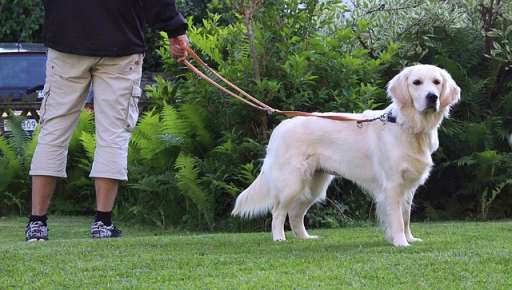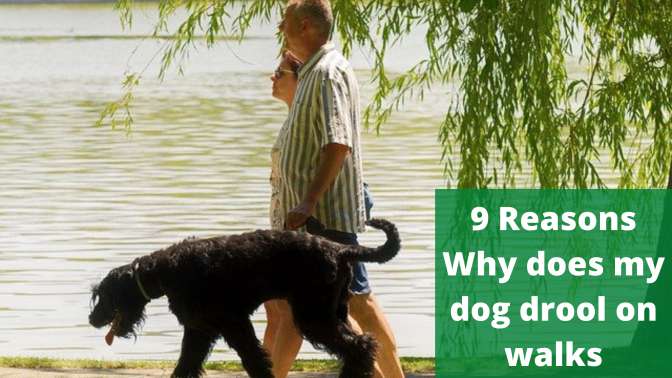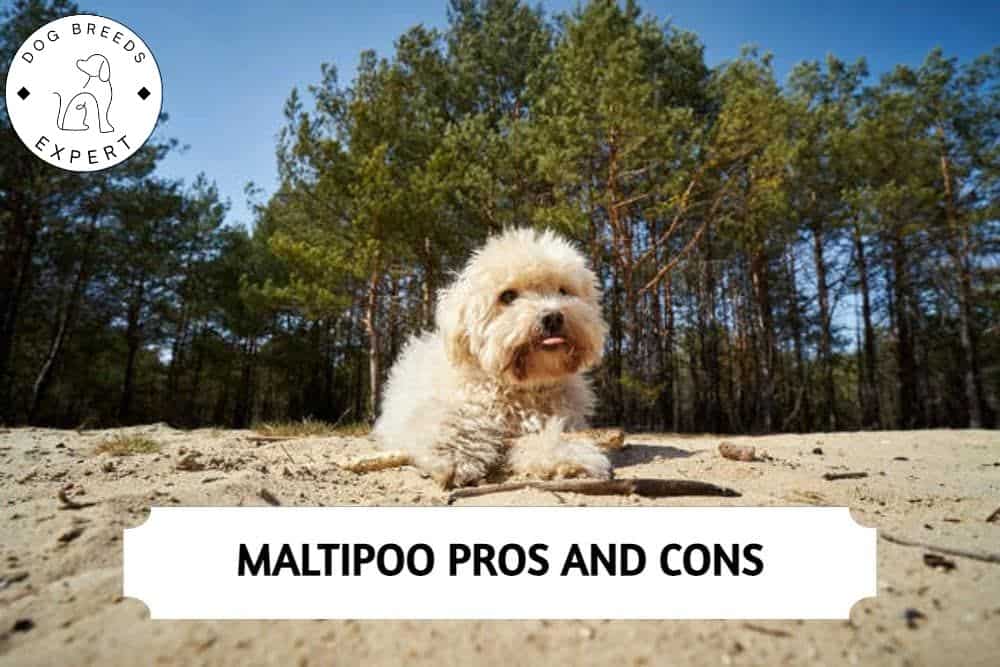Have you ever thought about why your dog drools on walks? I have received many messages asking this question, so I decided to do some research. Here is what I found:
Generally speaking, dogs drool on walks due to excitement, excessive exercise, teething, hunger, stress, humid or hot weather, health problems and their breed’s nature. Some of these causes can be remedied fairly easily; however, for others it may be best to consult a veterinarian.
Identifying the underlying reason for the drooling can help simplify the process of finding a solution. As an owner it is important to be aware of these potential causes in order to take appropriate action when needed.
Your dog may drool on walks as they take in the scent of something
If you are a first-time dog parent, this is quite a common occurrence. I have often seen my own pup drooling while they sniff around during our walks.
Sometimes they just want to pause and explore for a few moments and possibly even pee on grass or rocks. If I’m in a rush that day, I don’t always have time to wait for them to finish their investigations. So, I use certain tactics to keep them walking without any further stops or distractions.
OK, let’s get back to the topic. Usually, dogs have a natural tendency to sniff everything as they can detect a scent that captures their attention. When a dog smells something, they are more likely to drool even on walks because they are so curious to figure out the source of that scent.
Here are some of the smells that may grab your dog’s attention:
- Food
- Pee or poop of a dog
- The scent of an animal
- The scent of an individual that he knows
- The scent of a dog
I find it amusing to watch my dog drool and walk at the same time. He usually uses his nose to explore things, which seems to cause him to drool.
Most dogs tend to walk around with saliva dripping from their mouths, and they shake their head which causes the drool to fly off.

Reasons
- Natural tendency to sniff things
Solutions
- There are no solutions related to this conduct. It is a typical behavior of dogs. However, if your dog drools excessively while walking, it could be due to health problems. If that is the case, it is best to talk to a vet right away!
Excessive exercise can be a cause
If your dog used to drool excessively on walks, he may be tired, or the amount of exercise he engages in may be too much.
The fact to emphasize is that some dogs can handle strenuous exercise while others are content with light exercise, which depends on the breed.
For instance, Weimaraners and Vizslas can engage in intense activities all day long; they can run, walk, swim, and play in the same day.
But if you mistakenly give your dog too much exercise, he can become fatigued and more likely to drool excessively on walks. Thus, be mindful of that.
Check for the following signs in your dog:
- Not responding to commands
- Yawning
- Panting excessively
- Drinking a lot of water
- Licking their lips
- Not wanting to play
- Trying to hide
- Drooling
These may be signs that your dog is exhausted.
Reasons
- Doing unbearable exercises
- Being tired
Solutions
- The amount of exercise your doggo needs can vary depending on factors such as breed; however, the best solution is to consult a dog trainer or veterinarian.
- If your doggo belongs to one of the high-energy breeds, there may be health issues or another reason; thus, this article will provide further information – keep reading!
Your dog may drool on walks because of hunger

Hunger is one of the most typical reasons why your dog drools on walks. This may seem obvious, but it is true.
He may start to drool excessively as you pass by restaurants, so be mindful of that.
Reasons
- Hunger
Solutions
- Try to feed your pet on time
- Make a good diet plan
- Be sure to consult a veterinarian
Your dog may drool on walks because of stress
Stress is one of the significant reasons why your dog drools on walks. Often, stressed dogs tend to exhibit the following signs. In fact, you are the only one who knows your canine friend well.
Therefore, check if he exhibits the following signs.
- Ears flattened
- Yawning
- Scratching
- Tense muscles
- Tail between the legs
- Excessive barking
- Destroying things
- Going potty in the house
- Restlessness
- Panting or shaking
- Only wagging the tail tip
Reasons
There are several reasons for this problem. The most common are:
- Being Left Alone More Than Normal: Being alone for longer than usual can be a major cause of stress in your dog. Even if it’s just happened once, if this continues it could be a sign of an issue. Make sure to keep an eye out.
- Family Tensions: Just like humans, if your family is having difficulties this can affect your dog too. If there is constant conflict in the home, your pup may become stressed and they may start drooling more on walks.
- Lack of Sleep: If your dog doesn’t get enough sleep, they can become easily stressed. This could happen due to loud noises during the night or health issues.
- Lack of Exercise: Even if you are taking them on walks, not enough exercise can lead to increased stress levels in your canine friend.
- Change of Routine: Sudden changes to their daily routine can cause stress in dogs as they don’t understand what’s happening.
- Moving Houses: Moving house can confuse and stress out your dog as they walk on roads that are unfamiliar to them.
Solutions
You can do the following things to relieve the stress of your dog:
- Provide sufficient daily exercises
- Stick to a routine
- Mentally stimulate your dog
- Play music to mellow a stressed dog
- Avoid blaming or yelling
- Consult a veterinarian
Your dog may drool on walks due to excitement
If your doggy suddenly starts drooling on a walk, perhaps he is getting excited. Check if he is exhibiting any of the following signs:
- Raised ears
- A sharp look
- Standing still without moving
- A strange look
- Showing an unexpected feeling
Reasons
There are a few reasons that can cause your dog to become excited.
- Meeting another dog: If your dog meets another dog on a walk, he can quickly become excited and start to drool around that dog.
- Unexpected noises: Unexpected noises can excite a dog quickly.
- Meeting a stranger: If your dog is new to walking on the street, he may often become excited by strangers.
- Hearing a bark sound: When you take your dog for a walk and a bark sound suddenly occurs, it is natural for him to become excited and start to drool.
Solutions
There are several methods you can attempt to reduce your dog’s frequent excitements during walks.
- Socialize him: A well-socialized dog can understand many of the things that may occur while out for a walk. They must become accustomed to traffic sounds, people, other dogs, animals, and various distractions.
- Give proper basic obedience training: Appropriate obedience training can make your dog more relaxed and acclimate them to most of the things that can happen in their environment. A properly trained dog knows how to interact with people, dogs, and other animals; thus eliminating excessive drooling during walks due to excitement.
- Give proper exercise: Regular exercise helps keep your dog active and alert, reducing any potential excitement.
Teething can be a cause
This sound may be obvious, but if you own a puppy, they are more likely to drool on walks because this can be their teething period.
Note that teething has nothing to do with walking; however, I want to emphasize that this can also be a reason, so be aware of that.
Hot weather can be a cause
It doesn’t matter what breed your dog is; all dogs tend to drool excessively while on walks during hot days, and this behavior is more common in the summer.
Nature of the breed
There are some dog breeds out there that have a higher tendency to drool or slobber than other dogs. If your dog is one of these breeds, you don’t need to worry too much.
These dogs often have hanging jowls and can produce inches of slobber. Additionally, if your dog has a long thick coat, their slobbering tendency may be slightly higher compared to other normal dog breeds.
Nevertheless, if your dog is one of these breeds, you don’t need to worry too much.
- Bernese Mountain Dog
- Bloodhound
- Bull terrier
- Bulldog
- Dogue de Bordeaux (French Mastiff)
- Neapolitan mastiff
- Newfoundland
- Saint bernard
- Great Pyrenees
- Bullmastiff
- Great Dane
- Basset Hound
- Boxer
- Shar-Pei
- Irish Wolfhound
- Schnoodle
Suggested Reading: Why Does Your Dog Drool & Lick His Paws?
Because of health problems
This is one of the most serious reasons why your dog may be drooling or slobbering during walks. If your dog is suffering from any of the following health problems, the situation can be even more serious.
- Mouth and tongue erosions or ulcers
- Oral or esophageal foreign bodies or tumors
- Nausea
- Gingivitis: This is an inflammation of the dog’s gums
- Dental disease
- Stomatitis: This is an inflammatory disease of the oral mucus membranes in your dog
- Contact with caustic agents: This can often be insect stings or chemicals
- Injury to the oral cavity or tongue
- Neurologic impairment of chewing or swallowing
- Breathing problems: Breathing problems are most common in brachycephalic, often referred to as flat faced, dogs. Sometimes they might have difficulties breathing. In such situations, these dogs tend to drool or slobber even on walks
Things to be aware of
There are many reasons why your dog may drool or slobber on walks. It is important to be aware of these things if you take your dog out for daily walks.
Let’s take a look at some of the potential causes:
Make a Nutrition plan
You need to ensure that your dog is receiving the right kind of food and nutrition. It is important to note that if you are not an expert in this area, you should not attempt to create a nutrition plan for your dog yourself. Instead, consult a veterinarian and create an appropriate nutrition plan.
Make an Exercise plan
Your dog needs to have an appropriate exercise plan that takes into account a variety of factors. Therefore, it is recommended that you consult a veterinarian to create a personalized exercise plan specifically for your canine companion.
Carry a Water bottle
If you are accustomed to taking a daily walk with your dog, don’t forget to bring along a water bottle. This will help both you and your pup avoid dehydration.
Check if your dog Is In any Type of a pain
Check if he has any kind of a pain in the following places:
- Joints
- Muscles
- Abdomen
- Orthopedic
- Teeth
To determine if your dog has oral pain, a dental radiograph is required. Your veterinarian will take care of this for you; it is the only way to identify any broken tooth roots that may be hidden below the surface. It is not possible to detect this issue simply by examining your dog’s mouth.
Furthermore, there is a close relationship between oral pain, eating, and walking; however, not all dogs will experience this problem.
Conduct a complete oral exam
This is one of the most important things you need to do for your dog. Consulting a veterinarian and conducting a complete oral exam would be highly beneficial. Doing so can help ensure that any potential issues are identified early and addressed promptly.
Feed him before the walk
Feeding your canine friend right before a walking session can help them walk with more energy. This will optimize the digestive process and provide additional benefits for your pup. Walking helps to further break down food, aiding in digestion, and it can also help to reduce the risk of bloat, which is a potentially fatal condition that affects large or deep-chested dogs.
Conclusion
Have you ever noticed your dog drooling or slobbering on walks? If so, you may be curious to know the reasons behind this behavior. This article provides a comprehensive guide to understanding this particular issue.



